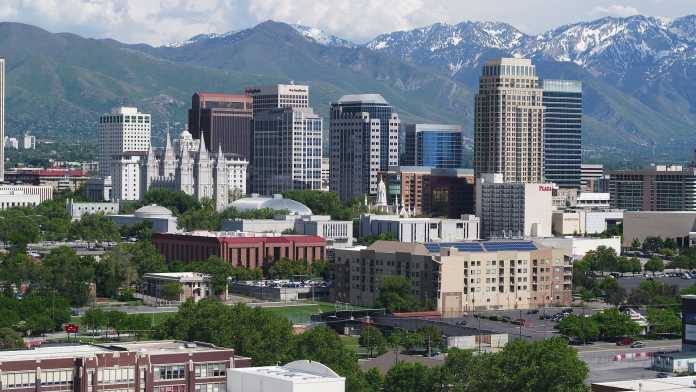Eleven students with the University of Utah’s Honors College viciously attacked climate science in an April 11 column in the Salt Lake City Tribune. The latest report from the United Nations Intergovernmental Panel on Climate Change (IPCC) examining extreme weather events reports only “low confidence” that climate change has impacted extreme weather events. Nevertheless, the students boldly, falsely, and without any supporting scientific evidence claimed climate change is making extreme weather events worse.
“In the past decade, climate change has played a role in disastrous global events,” the students asserted.
The 2018 IPCC Special Report, Global Warming of 1.5C, however, reports exactly the opposite:
- Tornadoes – The IPCC itself admits, “There is low confidence in observed trends in small spatial-scale phenomena such as tornadoes.”
- Hurricanes – The IPCC observes there is “only low confidence for the attribution of any detectable changes in tropical cyclone activity to anthropogenic influences.”
- Drought – The IPCC reports with “high confidence” that precipitation has increased over mid-latitude land areas of the Northern Hemisphere (including the United States) during the past 70 years, while IPCC has “low confidence” about any negative trends globally.
- Floods – The IPCC admits having “low confidence” in any climate change impact regarding the frequency or severity of floods. Indeed, the IPCC admits having “low confidence” in even the “sign” of any changes. In other words, the IPCC reports it is just as likely that climate change is making floods less frequent and less
Not only did the students attack the established science presented by the IPCC, they added insult to injury by later citing the United Nations report in an effort to support their claims.
The students presented their climate change misinformation to argue that global government should model climate change programs after the heavy restrictions on personal freedom in response to coronavirus. If, for the sake of argument, there are circumstances that might justify such severe restrictions on individual freedom, climate change falsehoods certainly do not qualify.
















Please accept my apology for my state’s non-reading students.
They must be book-worms not skiers; nor have they walked outside this spring.
A quick search shows this: https://www.noaa.gov/news/us-has-its-wettest-12-months-on-record-again, dated last summer. And it hasn’t stopped since.
Our snow pack (Utah) is where the state stores its water for the following growing season. When the rain stops this spring, it’s over until the monsoon pattern shifts in the fall to bring more moisture. Our snow pack today is 90% in the west and 100-140% in the mountains. Check Colorado too, it’s the same way. East of the Rockies? The same.
I am a retired airline pilot; and used metro data daily for over 35 years. Yes, it has become an excellent product for predictions of less the 36 hours. Beyond that, not so much. NOAA has a nice product, https://www.wpc.ncep.noaa.gov/#page=ovw. It forecasts three day ahead; and updates every day. It’s great for watering the garden three days out; but not for planning an intercontinental flight.
Academics in meteorology, economics and statistics all suffer from the same frailty. They can explain perfectly what has happened, but can’t offer more than an educated guess as to the future. The current embarrassing example is the impact of COVID19. As soon as they shifted to log ruled graphs and projected out in months, not days, they were doomed. In the US, they have missed by a factor of 50, not within the accepted 3%.
Sorry, but we cannot yet “model” future events in open chaotic systems. And maybe never will…
Thank you,
Jim L